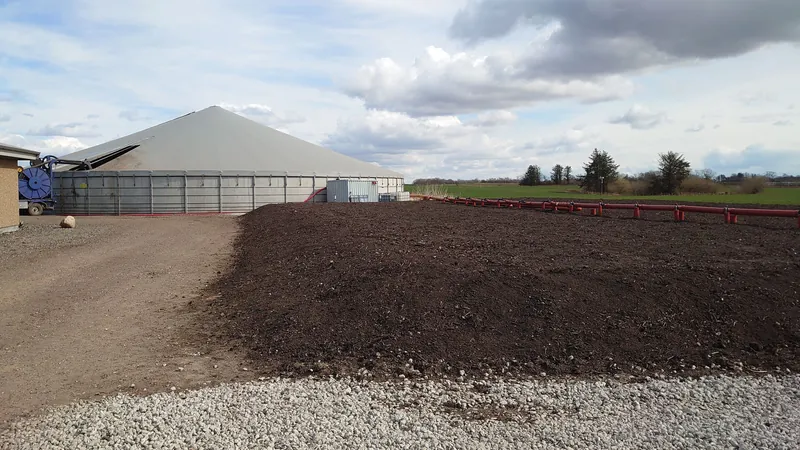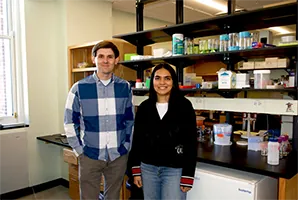
Revolutionary Biofilter Technology Slashes Methane Emissions from Danish Pig Farms!
2024-12-09
Author: Rajesh
In the spring of 2024, Denmark had nearly 11.5 million pigs, making pork a staple in the Danish diet. A staggering 1 in 3 respondents from a 2021 Epinion survey, which included 6,228 participants, admitted to enjoying pork the night before. However, this popularity has a serious environmental downside: pig manure, when stored, generates methane—a potent greenhouse gas contributing to climate change.
This urgent crisis has prompted innovation in pig farming, particularly with the introduction of biofilter technology. Previous trials indicated positive results in reducing methane emissions from landfills, leading researchers from DTU Sustain to adapt this technology for the agricultural sector. In 2022, they installed a groundbreaking biofilter at a pig farm in Gilleleje, north of Copenhagen.
How Does the Biofilter Work?
The biofilter consists of an excavated area filled with stones that serve as gas distributors, topped with a compost layer rich in methane-eating bacteria. This unique setup enables bacteria to break down methane as the gas travels through the compost layer, completely eliminating the need for harmful chemicals. This system is not only environmentally friendly but also applicable in both conventional and organic farming.
At the Gilleleje test farm, a 400 m² biofilter was positioned strategically near a covered slurry tank holding 4,400 m³ of manure. Equipped with advanced measuring tools, the researchers could accurately track the methane breakdown process and the biofilter's efficiency.
In this first full-scale test, the biofilter astounded researchers by eliminating 92% of the methane that passed through in its inaugural year, vastly exceeding the anticipated 80% efficiency. "Our expectations were surpassed significantly," said Charlotte Scheutz, the project's lead professor at DTU.
Cost-Effective Climate Solution
Throughout the testing phase, 75% of slurry gas was captured, leading to an overall methane reduction of 69%. Analyzing the cost-effectiveness of this breakthrough, researchers calculated a "shadow price" of DKK 74 per ton of reduced CO2 equivalents (CO2-e). This figure stands in stark contrast to the recently approved CO2 tax in Denmark, which is set at DKK 300 per ton, increasing to DKK 750 by 2035.
"This indicates that while there are initial costs for setting up and managing a biofilter, it remains a more economical option compared to the forthcoming CO2 tax," Scheutz explained.
Looking to the Future
The promising results have secured additional funding for further research and development of this technology. The team is set to monitor the Gilleleje biofilter closely and hopes to establish two more systems at other pig farms.
As of 2022, Denmark was home to 2,399 pig farms, but the extent of methane emissions from these operations is still largely unknown. The research team plans to conduct a thorough investigation involving 18 pig farms to gather vital emission data, leading to an improved understanding of methane production in Danish pig farming.
With this innovative technology on the horizon, the future looks brighter for sustainable pig farming in Denmark, paving the way for reduced greenhouse gas emissions and a more environmentally conscious meat industry. Stay tuned for more updates on this exciting development that could revolutionize farming practices worldwide!

 Brasil (PT)
Brasil (PT)
 Canada (EN)
Canada (EN)
 Chile (ES)
Chile (ES)
 España (ES)
España (ES)
 France (FR)
France (FR)
 Hong Kong (EN)
Hong Kong (EN)
 Italia (IT)
Italia (IT)
 日本 (JA)
日本 (JA)
 Magyarország (HU)
Magyarország (HU)
 Norge (NO)
Norge (NO)
 Polska (PL)
Polska (PL)
 Schweiz (DE)
Schweiz (DE)
 Singapore (EN)
Singapore (EN)
 Sverige (SV)
Sverige (SV)
 Suomi (FI)
Suomi (FI)
 Türkiye (TR)
Türkiye (TR)